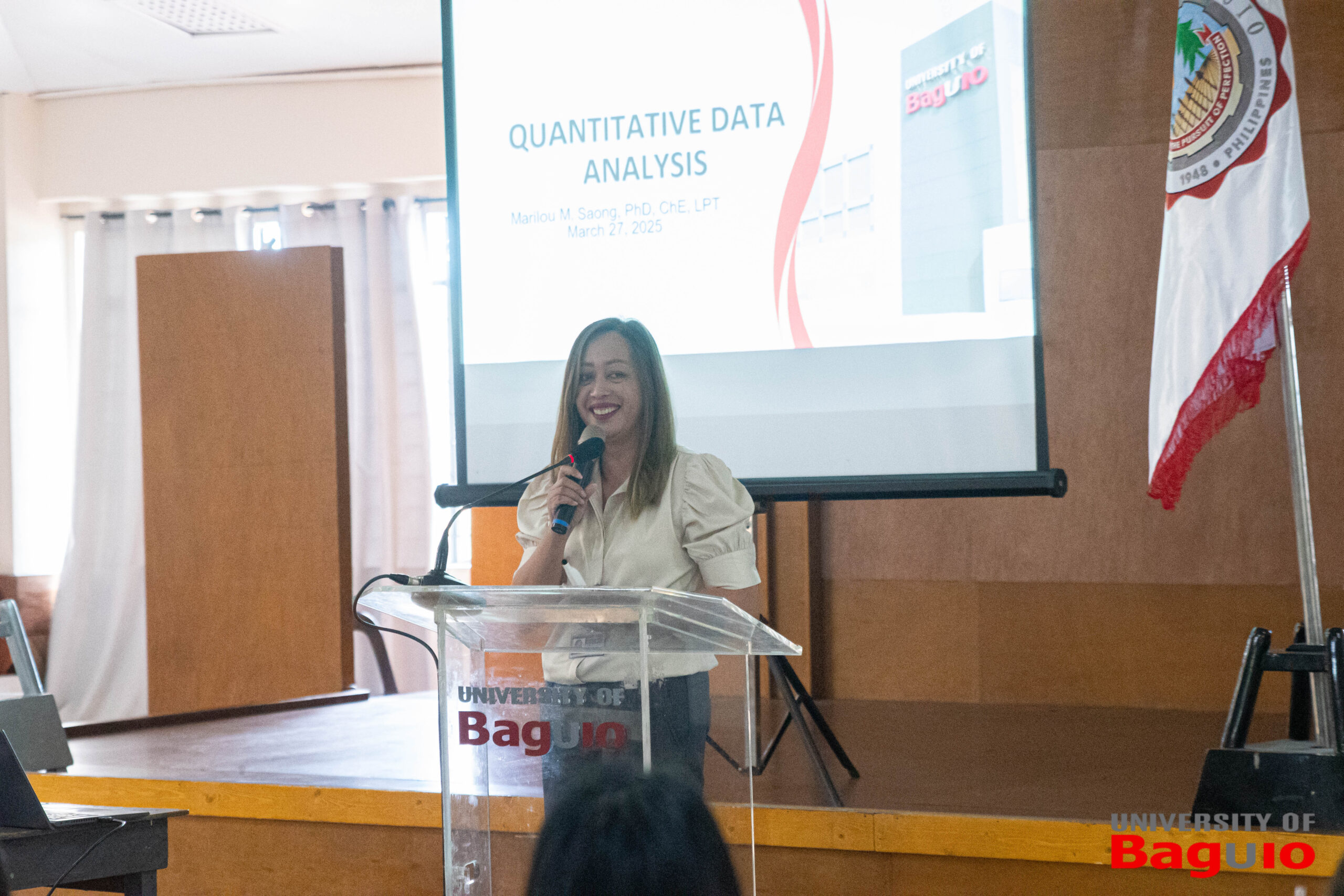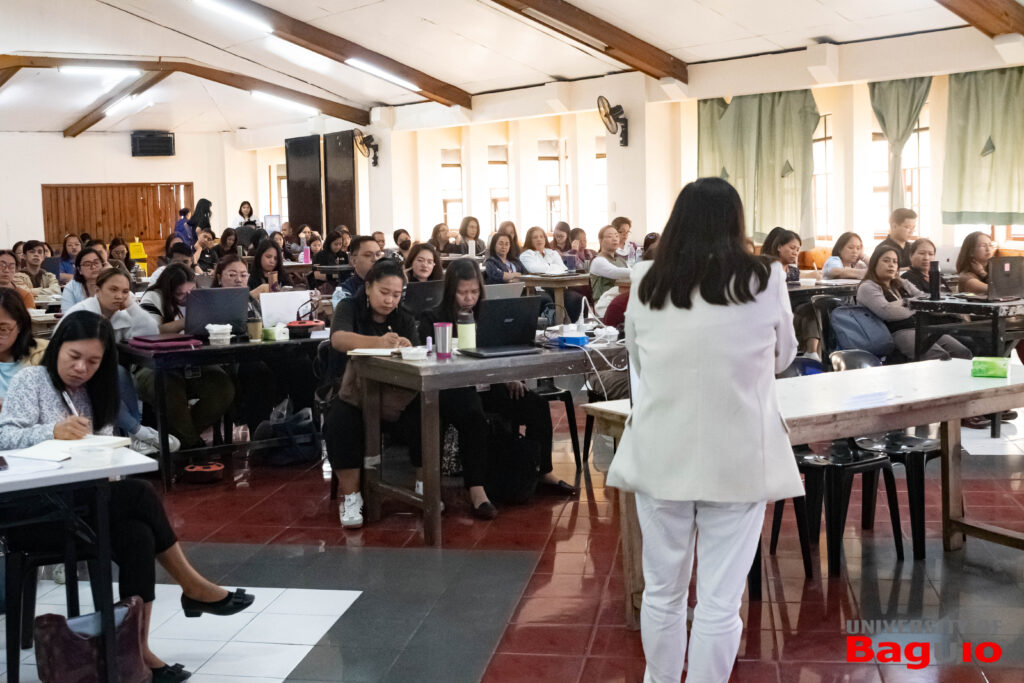
"...empowered researchers to analyze data with precision, uphold the highest standards of research integrity, and explore the complexities of academic publishing with confidence"
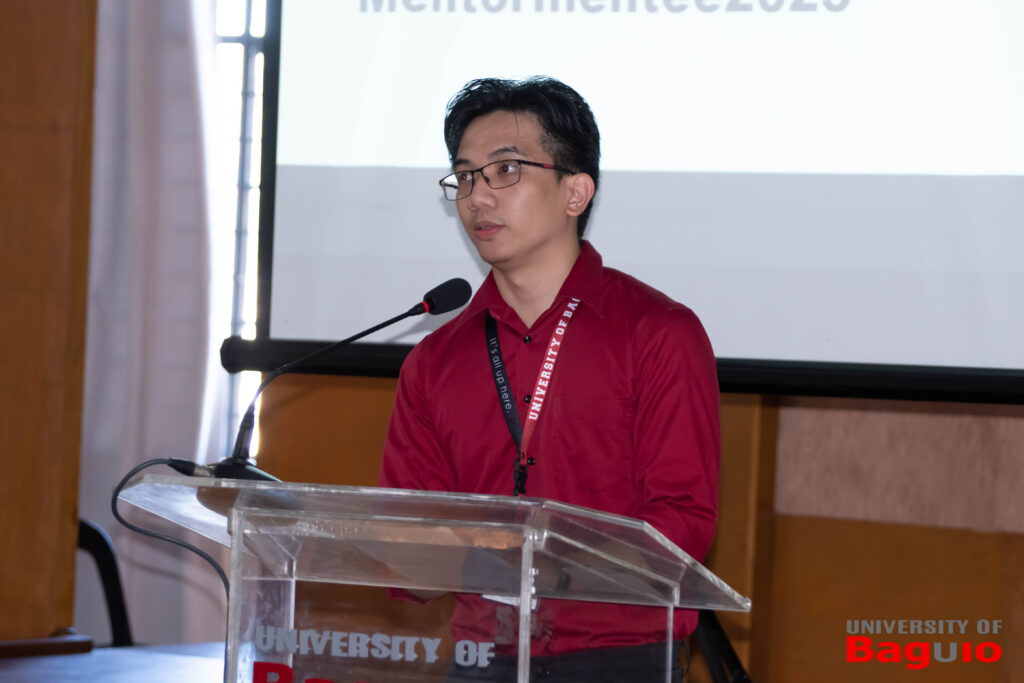
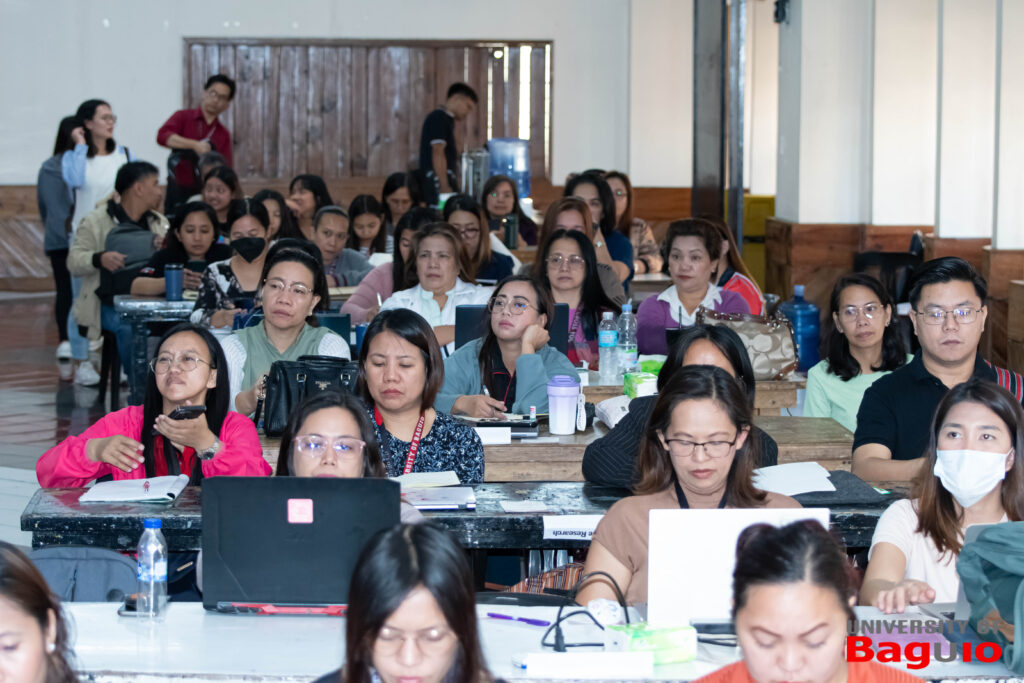
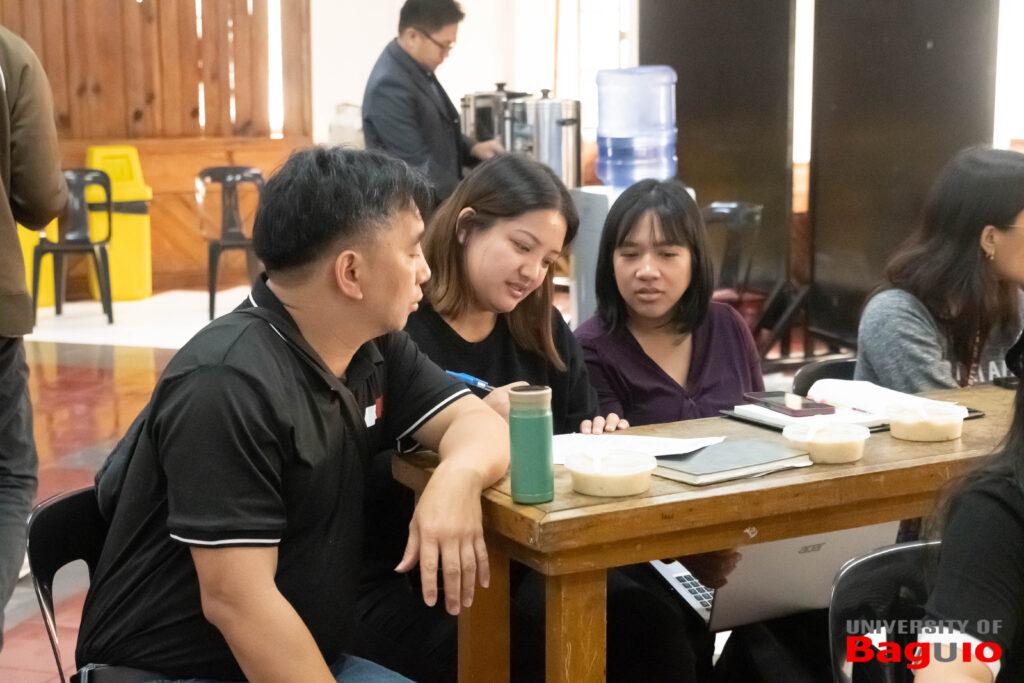
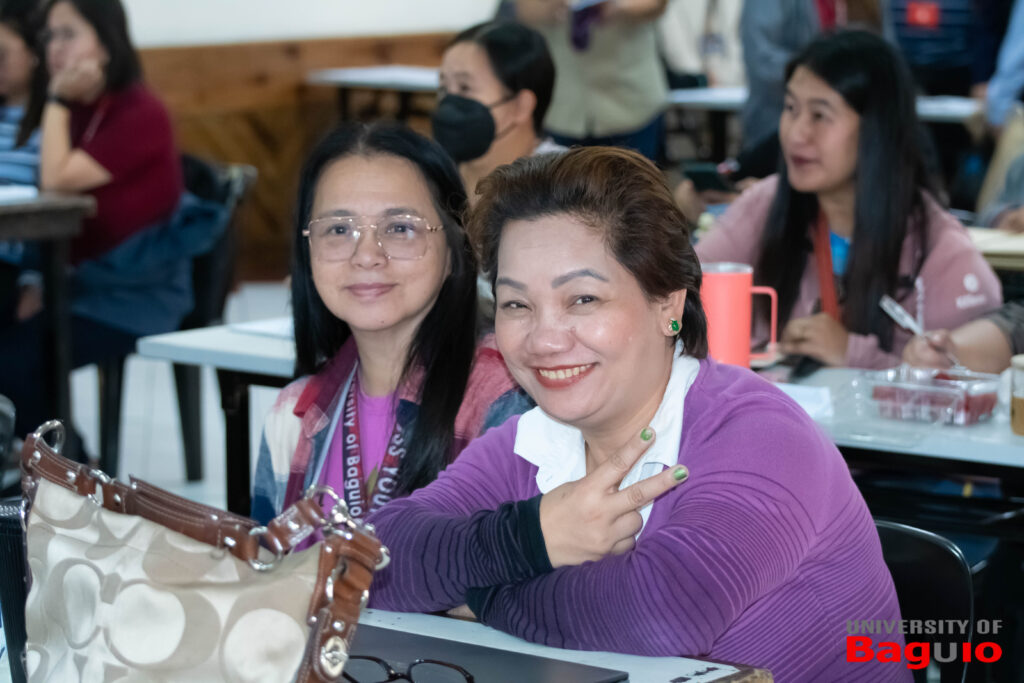
On March 27 and 28, 2025, the University of Baguio reaffirmed its commitment to strengthening research skills by hosting a two-day follow-up Seminar-Workshop on Mentor-Mentee RE: Data Analysis and Publication. Organized by the Research Innovation Extension and Community Outreach (RIECO) Office, led by Dr. Donnavila Marie B. Panday, the seminar was PRC-accredited for Continuing Professional Development (CPD) units, making it a valuable opportunity for professional growth. Participants included faculty members and non-teaching personnel engaged in research, along with researchers from neighboring institutions such as Baguio Central University, Easter College Inc., and Cordillera Career Development College. In addition, the seminar-workshop aimed to bridge the gap between research theory and practice, ensuring that participants not only acquired theoretical knowledge but also developed practical skills in data analysis and publication. Furthermore, the inclusion of a mentor-mentee framework emphasized UB’s dedication to sustained research development, ensuring that participants received the necessary guidance for their specific research needs. Through interactive lectures, clustered workshops, and panel discussions, the activity not only enhanced research capabilities but also strengthened professional networks among researchers from different institutions.
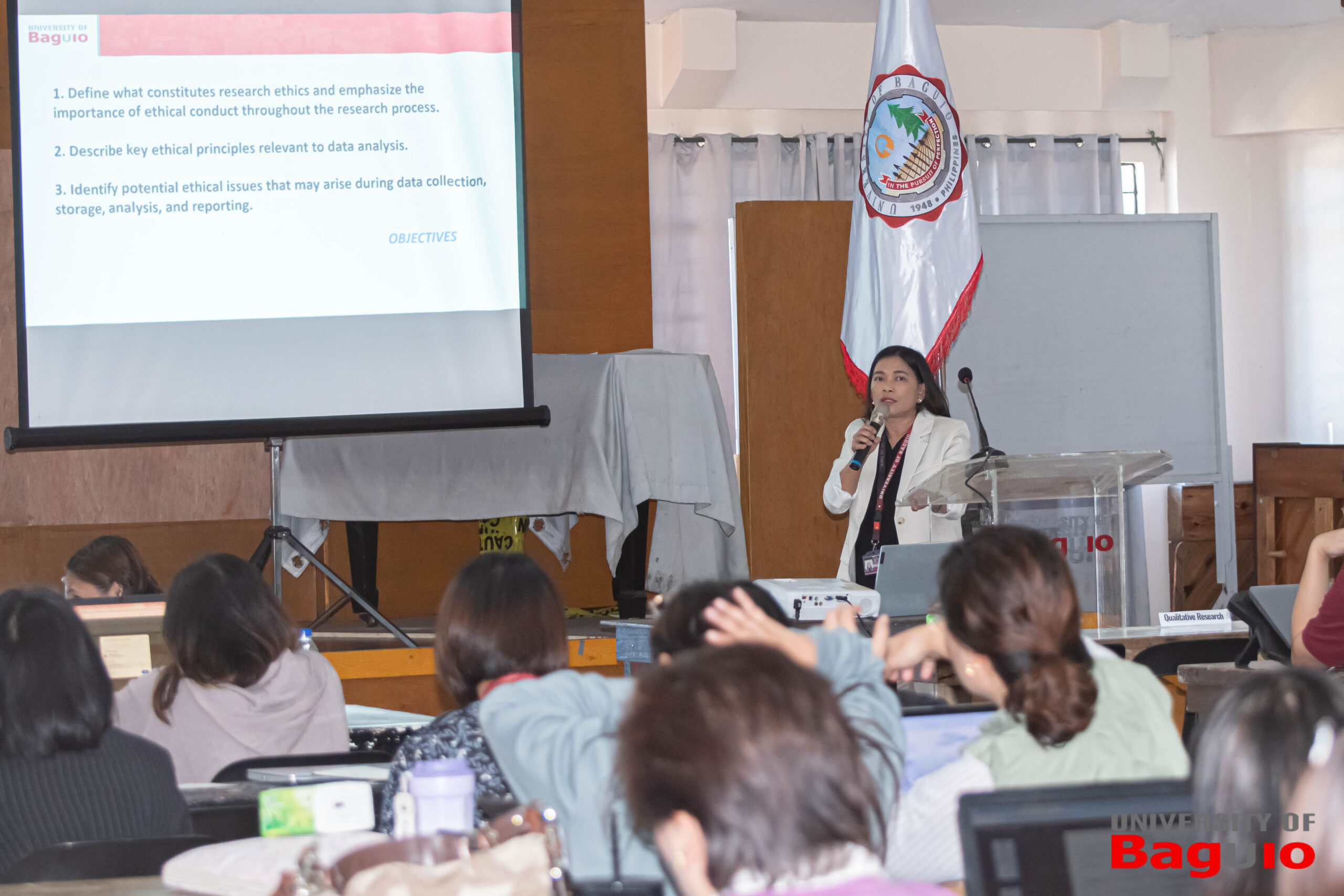 The first day focused on Data Analysis, with discussions on ethical research practices and best approaches for handling qualitative data. Dr. Vilma Deponio shared her expertise on Ethics in Research and Qualitative Data Analysis, emphasizing the importance of maintaining integrity and credibility in qualitative studies. She discussed the ethical considerations researchers must uphold, including informed consent, confidentiality, and the responsible handling of sensitive data. She also guided participants on coding and analyzing qualitative data, ensuring that themes and findings are derived systematically and ethically. Meanwhile, Dr. Marilou Saong, provided valuable insights into Quantitative Data Analysis, highlighting the importance of selecting appropriate statistical tools, data validation, and ensuring accuracy in interpretation. She further demonstrated the application of descriptive and inferential statistics, helping participants understand how to analyze numerical data effectively and make data-driven conclusions.
The first day focused on Data Analysis, with discussions on ethical research practices and best approaches for handling qualitative data. Dr. Vilma Deponio shared her expertise on Ethics in Research and Qualitative Data Analysis, emphasizing the importance of maintaining integrity and credibility in qualitative studies. She discussed the ethical considerations researchers must uphold, including informed consent, confidentiality, and the responsible handling of sensitive data. She also guided participants on coding and analyzing qualitative data, ensuring that themes and findings are derived systematically and ethically. Meanwhile, Dr. Marilou Saong, provided valuable insights into Quantitative Data Analysis, highlighting the importance of selecting appropriate statistical tools, data validation, and ensuring accuracy in interpretation. She further demonstrated the application of descriptive and inferential statistics, helping participants understand how to analyze numerical data effectively and make data-driven conclusions.
In the afternoon session, a collaborative mentor-mentee workshop further strengthened UB’s commitment to supporting researchers at every stage of their researches. Participants were grouped based on their research type, qualitative, quantitative, or mixed methods, to allow for a more focused discussions and hands-on guidance. Under the mentorship of Dr. Warren Moyao, Dr. Marie Joy Capdos, Dr. Adelle Sanchez, Mr. Miguel Villacruciz, Dr. Vilma Deponio, Dr. Marilou Saong, and Dr. Victor Hafalla Jr., participants actively engaged in one-on-one consultations and group mentoring, where they received constructive feedback on their research methodologies, data analysis techniques, and research frameworks. The interactive setup of the activity fostered an environment where participants could ask questions, clarify doubts, and refine their research approaches with expert guidance. Furthermore, the participants found the workshop valuable for addressing specific challenges in their research papers, such as data interpretation, methodological accuracy, and ethical compliance. The enthusiasm and engagement showed by the participants reflected their eagerness to improve their research capabilities, making the workshop a truly immersive and transformative learning experience.
On the second day, the focus shifted to research publication, an essential but often challenging part of the research process. Dr. Marilou Saong facilitated a lecture on Best Practice Guidelines on Research Integrity and Publishing Ethics, guiding participants through the complexities of academic publishing, from ensuring research integrity to selecting the right journals. She also provided practical insights into avoiding predatory journals, understanding peer review processes, and maintaining ethical standards in writing and data reporting. Lastly, her session offered a clearer path for researchers aiming to publish in reputable, high-impact journals.
Building on this discussion, Dr. Victor Hafalla Jr. explored Trends in Research Publication, providing practical advice and personal experiences to help participants understand the evolving landscape of academic publishing. He emphasized the importance of adapting to new research trends, leveraging open-access opportunities, and utilizing emerging digital tools to enhance research visibility and citation impact. He also discussed the increasing role of interdisciplinary and collaborative research in today’s academic world, encouraging participants to seek international partnerships and/or beyond their institutions to further strengthen their studies.
In the afternoon session, participants once again engaged in a panel-style discussion, presenting their research papers for constructive critique from the mentors. This session proved to be a turning point for many, as they received valuable feedback on their methodology and analysis. The interactive nature of the session allowed for in-depth discussions, helping participants refine their arguments, strengthen their findings, and address gaps in their work. This experience not only enhanced the quality of their research but also boosted their confidence in presenting and eventually publishing their studies. Additionally, representatives from various institutions actively participated, embracing the opportunity to receive expert recommendations and network with fellow researchers.
By the end of the workshop, it was evident that this activity was more than just a seminar, it was a transformative and collaborative learning experience that empowered researchers to analyze data with precision, uphold the highest standards of research integrity, and explore the complexities of academic publishing with confidence. The University of Baguio’s unwavering commitment to fostering research excellence shone through, ensuring that all the participants were equipped with the resources, knowledge, and mentorship needed to make meaningful and lasting contributions to the academic and research community.
